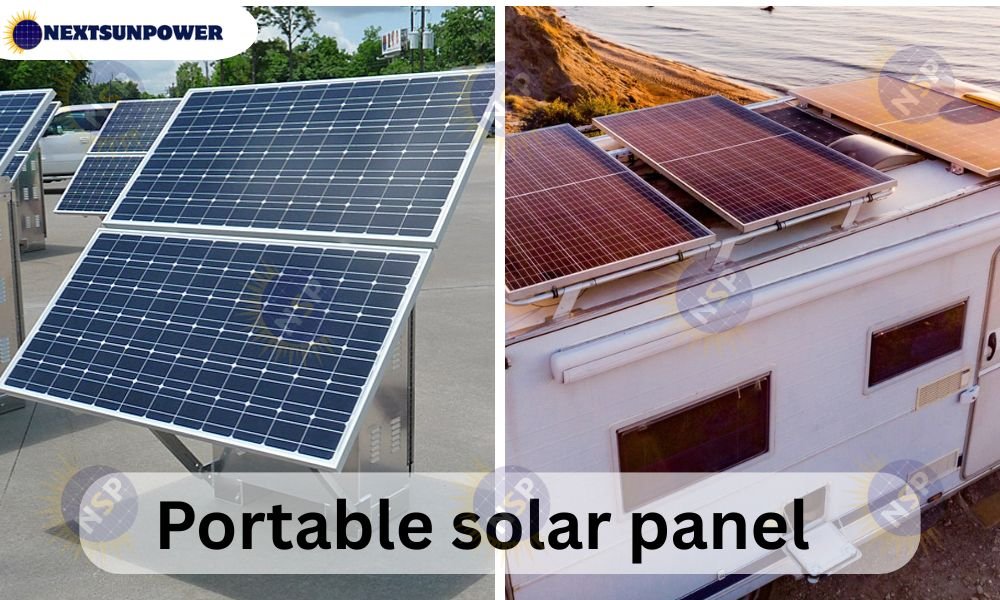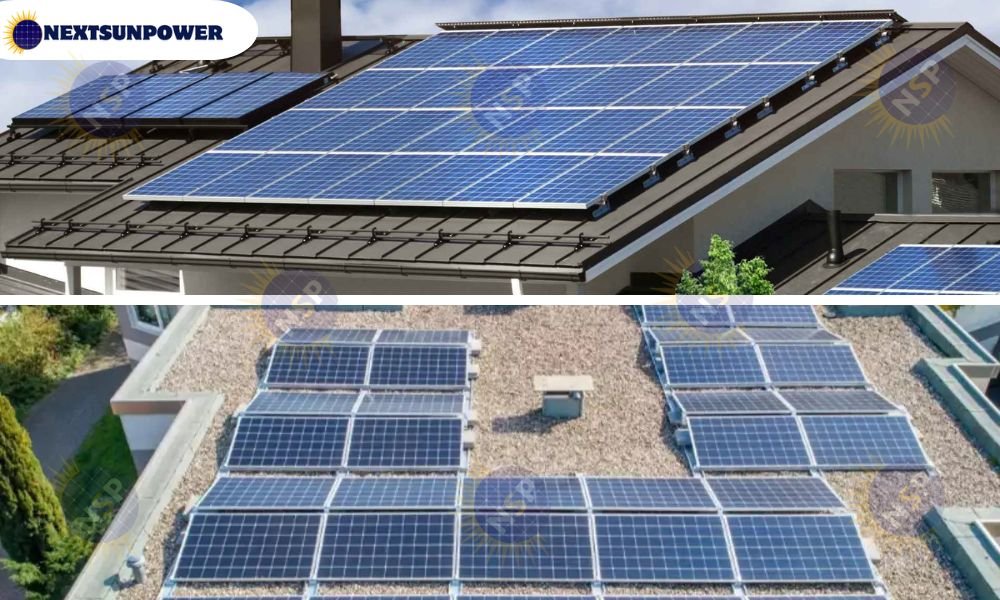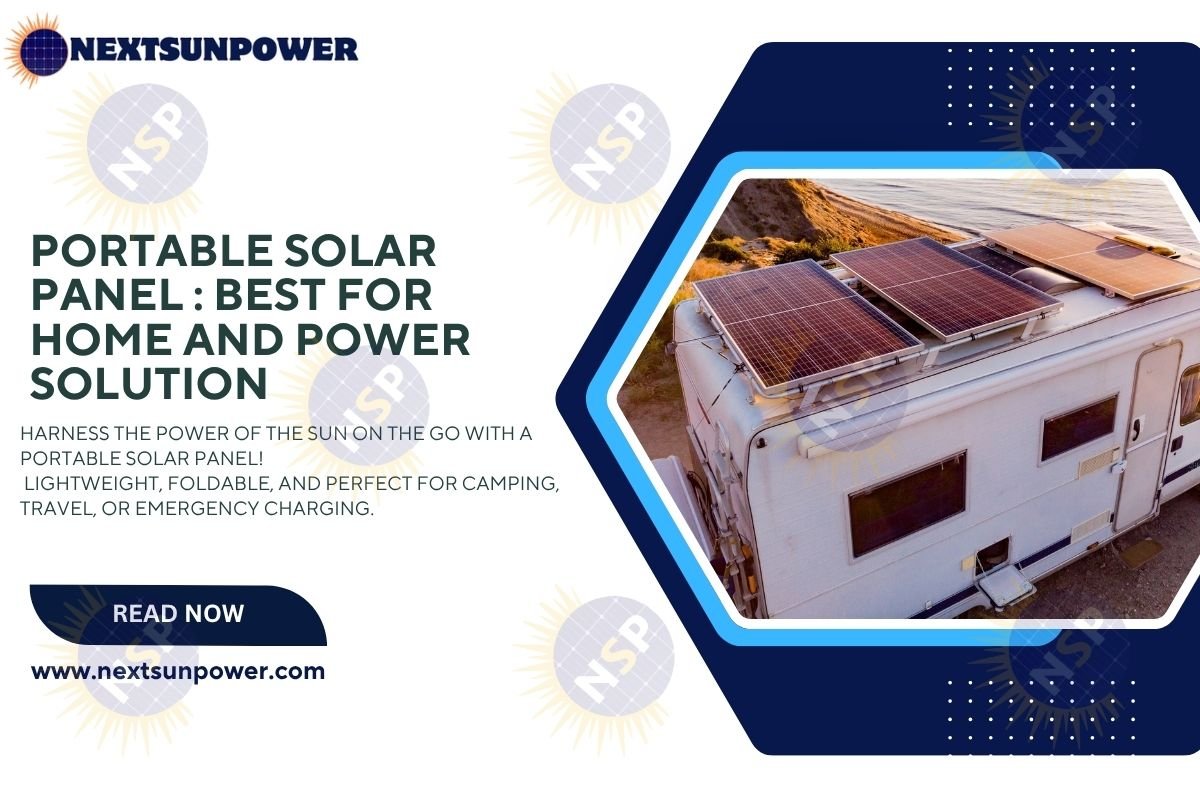There’s something about Mobilizing the power of the sun to charge your phone or power your camp that’s empowering. I’ve used portable solar panels on road trips and camping excursions, and believe me—it’s an absolute game-changer. Whether you intend to live off-grid or just want to have a home power back-up source, this guide will demystify portable solar panels for you, inform you what are best portable solar panels, and assist you in selecting the correct one for your needs.
Let’s dissect all of that in plain English so that everyone can appreciate this wonderful technology.

What are Portable Solar Panels?
Portable solar panels are light, transportable solar systems that are easy to install and carry wherever you go to power up using sun energy. They are in contrast to roof solar panels, which are made to stay put and ported.
Think of them as your power wherever possible. You’re camping in the woods, tailgating at the game, or just experiencing a home power outage, and portable solar panels will power your necessities.
How can a Portable Solar Panels Work
It’s not as complicated as it sounds.
- Sunlight hits the panel.
- The panel turns sunlight into electricity.
- The power is stored in a battery or fed directly.
There are even inverters integrated into a few of the kits or USB terminals so you simply plug your appliances into them. They even power some people’s small refrigerators, CPAP machines, and small electronics.
When I went camping and used one, I was able to charge my phone and flashlight and even run a small fan—just from the sun!
Why Use Portable Solar Panels?
You might wonder, “Why not a generator?” Here’s why so many Americans (like me!) are switching:
Environmentally friendly: No fumes, no fuel, no noise.
Cost-effective: After you’ve shelled out money for it, sunlight is 100% free.
Convenient: Easy to install, relocate, and store.
Low maintenance: No parts to fix or oil to replace.
Types of Portable Solar Panels
Let’s take a look at the types to find out what will suit best for different needs.
1. Foldable Solar Panels
Small and foldable like a briefcase. Suitable for campers and travelers.
2. Rollable Solar Panels
Light and flexible, they can be rolled like a yoga mat. Suitable for backpackers and trekkers.
3. Suitcase-Style Panels
They often have a stand along with sometimes a controller. They are heavier but provide more output.
What to Check When You Choose Portable Solar Panels
I was confused when I purchased mine, but once I jumped in (and experimented), here are the most appropriate features to check before you purchase:
1. Wattage
This will tell you how much power you’ll get. A 100W panel will power little appliances, phones, and laptops. For heavier loads, like portable solar panels for rv, use 200W or more.
2. Port Options
Choose USB ports, DC ports, or AC inverters depending on what type of devices you will be charging.
3. Weight and Size
Lightweight for hiking or travel. But home or RV use, a heavier unit can be utilized.
4. Durability
Weather-proof panels are the best, particularly if you will be using it outside.
5. Battery Compatibility
There are those with a built-in battery; there are also those with a removable battery.
Best Applications of Portable Solar Panels
Portable solar panels don’t have to be reserved for emergencies alone—these are extremely versatile. This is how individuals across the U.S. are applying them:
1.portable solar panels for camping
I prefer to take mine with me on holiday vacations. They are quiet, clean, and won’t disturb nature’s silence.
2. RV Portable Solar Panels
Most RVers use solar so they do not have to spend on costly campground hookups. It is perfect for boondocking or dry camping.
3. Home Portable Solar Panels
They are perfect for blackouts or to help save electricity bills. Keep them in your balcony or garden to power small devices.
Best Portable Solar Panels Available in the Market (2025 Edition)
The following are some models and brands that always come on top for you to search for the best portable solar panels:
1. Jackery SolarSaga 100W
- Lightweight
- Portable and foldable
- Ideal for charging power stations
2. Goal Zero Nomad 200
- Efficient
- Ideal for use in RV or backup home
3. Bluetti PV200
- compatible with most solar generators
- Very durable
4. Renogy 100W Solar Suitcase
- Charged by charge controller
- Ideal for portable solar panels for homes
These are all tested and proven by outdoor enthusiasts, RVers, and homeowners too.

Portable Solar Panel Advantages and Disadvantages
Here is a brief rundown based on personal experience and consumer reviews:
Advantages
- Lightweight and compact
- Saves carbon footprint
- Long-lasting (10–25 years)
- Perfect for off-grid living
Disadvantages
- High installation cost
- Slow charge during cloudy days
- Not suited for high-energy uses like big home appliances
How to Make Portable Solar Panels Operate
They are easy to clean, but good habits matter:
Wipe surface with a soft cloth on a regular basis
- Don’t drop or scratch them
- Dry and store when not in use
- Use protective cases when traveling
Pro tip: Position the panel at an angle to the sun for best power!
Environmental and Financial Gains
Using portable solar panels doesn’t just help you—it helps the planet. Here’s how:
- Cuts down on fossil fuel use
- Reduces greenhouse gases
- Saves money over time
Even a tiny 100W panel can reduce hundreds of pounds of CO₂ emissions annually.
Are Portable Solar Panels Right for You?
If you are reading this, chances are that you are interested in solar but not in a full rooftop installation. That is precisely why I began with portable panels, and I’ve never ever regretted it.
FAQs about Portable Solar Panels
Q1: How long do portable solar panels last?
They will last for 10 to 25 years, depending on your maintenance.
Q2: Can portable solar panels operate on cloudy days?
Yes, but less efficiently. Expect 20–30% of normal output on rainy days.
Q3: Are portable solar panels water-resistant?
Some are water-resistant but not under-water-proof. Check the instruction guide first.
Q4: What can I power with portable solar panels?
Phones, laptops, lights, fans, cameras, and even some appliances depending on wattage.
Q5: Should I get portable panels professionally installed?
Not at all! Most of them are plug-and-play and don’t need tools or installation skills.
Conclusion
Solar panels that are portable have revolutionized my energy outlook. Whether weekend camping trips on day excursions or power outages at home, they are a green, consistent supply of energy within reach of anyone. Be you searching for the top-rated portable solar panels, in planning off-grid, or merely seeking an ecologically friendly backup, solar is you in charge—no gas costs and no noise.
If you’d like me to turn this article into a downloadable PDF, infographic, or even a comparison table of the top models, just let me know!

Leave a Reply